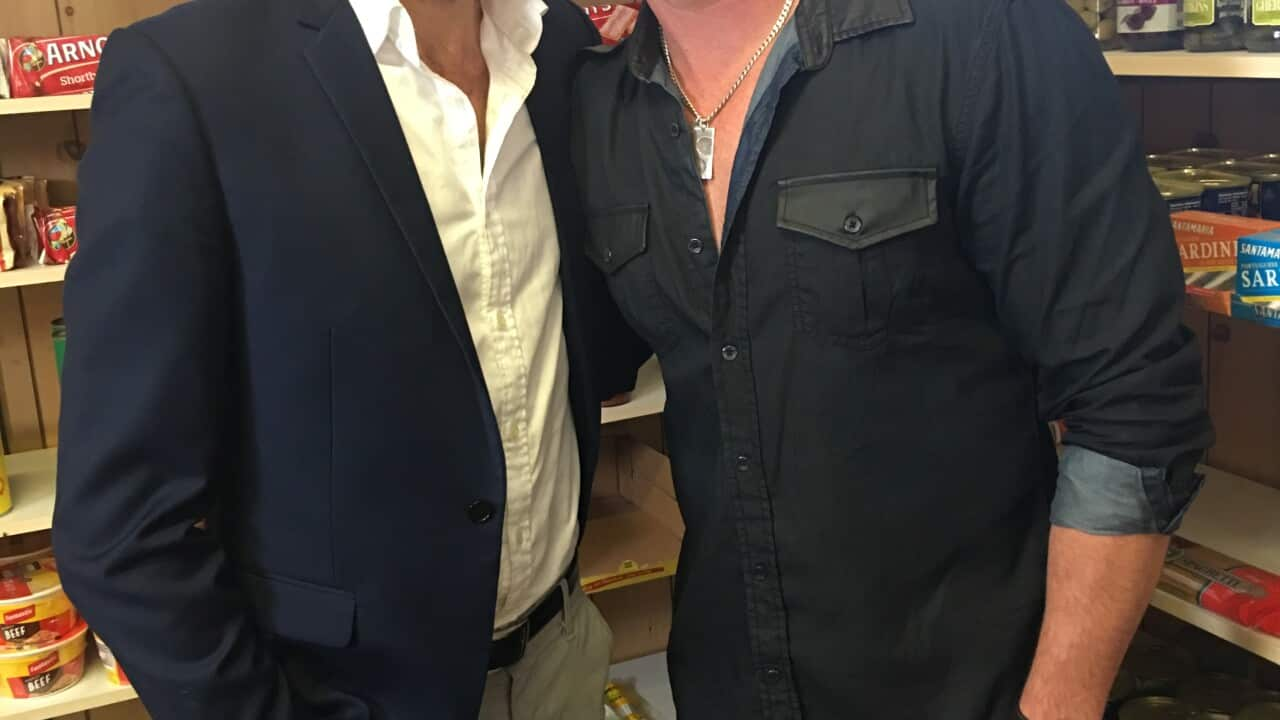This year heralded changes to the voting system that were subject to much criticism in the lead up to the show. Rather than reporting combined jury and popular votes, these were divided and reported separately, meaning that both fans and the juries would be awarding douze points. Each country’s televotes were then combined and reported from lowest to highest.
Fans feared that the changes would ruin long-held traditions that had developed around the idiosyncratic voting system, while the Swedish producers and the EBU assured us that the new format would increase tension and possibly mitigate concerns about bloc voting.
I was a sceptic, but the producers were right.
Australia’s clear lead in the professional jury vote and its fourth place in the popular vote meant that Australian fans waited with bated breath until the bitter end. We were joined in the nail-biting tension by Eurovision (and political) rivals Russia and Ukraine, who took out the first and second places of the popular vote respectively.
As I know that sitting down with an Excel spreadsheet may not be everyone’s favourite way to spend a Sunday morning, I took one for the team.
Australia received a total of 511 votes. The professional juries awarded us 320 votes, beating Ukraine in second place by 109 points. In the televote, Australia came in third with 191 points, beaten by Ukraine with 361 points and Ukraine with 323 points.
Although Russia won the televote by 32 points – and beat Australia by 170 points – it is hardly time to sob quietly into our pillows about how Europe doesn’t like us. On the contrary, an even closer examination of the results reveals that Europeans – both the professional juries and the televoting populace – really responded to Dami’s “Sound of Silence”.
Watch Dami's incredible Grand Final performance below:
Of the 41 professional juries eligible to vote for Australia (our jury being the 42nd and therefore ineligible to vote for Dami), 38 awarded points to Dami. The three that resisted her charms were the Czech Republic, Ireland, and San Marino. (Fair cop from Ireland – our jury didn’t award them any points in the semi final).
To put this into further perspective, 23 juries voted for Ukraine, placing them second in frequency of voting as well as in total number of votes from the professional juries, while Russia received votes from only 19 juries.
Australia was amongst those juries that did not allocate points to Russia – “You Are the Only One” ranked 18th in our jury's totals, with Myf Warhurst being the only judge to place it in her top ten.
In the televote, the only countries to not award Australia points were Armenia, France, Italy, and Montenegro. These were all countries that had awarded jury votes; Australia did gain popular votes from those countries where jury votes were not awarded.
We were most popular in Albania, Malta, and Sweden, who each awarded us 12 points. The Scandinavian countries generally responded well, with Denmark awarding 10, and Iceland and Norway awarding 8 points each. Australia was less popular the further east you travelled – but still popular enough to be awarded points.
Russia, in comparison, did receive televotes from all countries, including douze points from Armenia, Azerbaijan, Belarus, Bulgaria, Estonia, Germany, Latvia, Moldova, Serbia and Ukraine. Iceland was the only country that did not award popular votes to Ukraine, but many of the countries that had awarded the top prize to Russia gave their ten points to Ukraine.
Certainly there are arguments to be made that these results show evidence that the new system has not eradicated bloc voting, but it is also important to temper our cynicism. After all, Sergey Lazarev is a highly popular artist in the region (and highly fancied beyond it) and Jamala’s “1944” doubtless struck a strong emotional, musical and, dare I say, political chord with Eurovision fans. Nevertheless, the fact that the winning song of 2016 won neither the jury nor the televote will have some fuming.
Further number crunching also indicates that Dami likely would have won under the old voting system. In response to this the hashtag #JusticeForAustralia has started trending in the Twittersphere – and not just from embittered Australians - but from all over Europe.
While I’m not inclined to read anything too nefarious into our relations with those countries who awarded Australia nul points, there is much to be interpreted from our successes.
Australia’s domination in the professional jury vote is a vindication of our pop music industry in a global arena.
Sweden’s douze points are a particularly ringing endorsement for songwriters DNA (Anthony Egizil and David Musumeci). As the whole production of Eurovision 2016 served to highlight – from the mash-up of global hits by Swedish artists to the appearance of Justin Timberlake performing a song co-written with Swedish songwriters – Sweden has quietly (or perhaps not so quietly) risen to dominance as a pop powerhouse.
And what does the popular vote signify? Australia may be halfway around the other side of the world from Europe, as Graham Norton helpfully pointed out to us the other day, but it turns out that the geographical divide can be overcome by a good song and an amazing performance.






